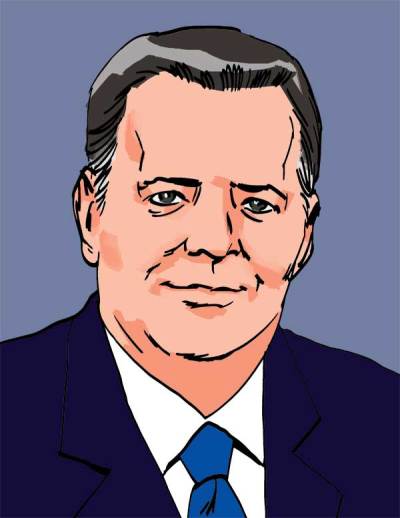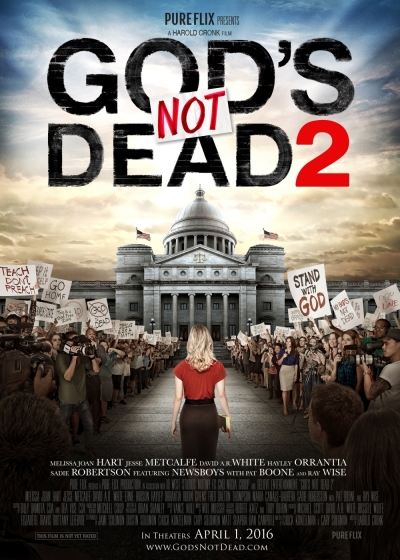Should American Christians Be Concerned About Their Own Religious Freedom?

Conservative Christians in America are growing increasingly concerned about their own religious freedom. They should be.
Lifeway Research recently released polling data that revealed rapidly growing concern and significant divergence of opinion concerning the erosion of religious liberty in America.
Lifeway found that 63% of those polled said they believe Christians are experiencing accelerating intolerance toward their religious beliefs, up from 50 percent in 2013, an increase of 9 percent in just two years' time.
As the concern over threats to religious liberty has surged, the data identified very different perceptions among groups of Americans, depending on their age and their religion or lack thereof.
First, only 42 percent of those aged 18 to 24 believe religious liberty is declining in the United States. Conversely, 62 percent of those 25 or older see varying degrees of corrosion of Americans' religious freedom. Perhaps that is because those older Americans have much longer frames of reference and thus can remember a time when there was far less hostility to Christians in America.
The Lifeway Research poll also surfaced significant opinion disagreement among both religious and non-religious Americans.
Most Christians (70%) and 82% of Evangelicals believe Americans are increasingly intolerant of their faith convictions. Also, 76 percent of Americans of all faiths who attend worship services at least weekly see increased intolerance of America's Christians.
However, only 48% of "nones" — those identified with no faith tradition — believe intolerance of Christians is increasing while 59% say Christians complain too much about how they are treated. One is tempted to ask, "How would you know — you are not the ones being discriminated against?" Perspective aside, nearly half of even this group of Americans acknowledges increased discrimination against Christians.
At the very least, the Lifeway Research reflects the fact that Americans have a general sense that the ground has shifted into a culture that is far more intolerant of the free exercise of traditional Christian faith than was true even a few years earlier, much less a generation or so ago.
While such attempts to circumscribe, curtail, or silence Christians' free exercise of their faith in the public square have been gathering momentum for years, such efforts have accelerated since the Supreme Court's Obergefell v. Hodges decision, which legalized same-sex marriage in all 50 states in June of last year.
Evidence abounds from sea to shining sea that Christians whose faith compels them to refuse to bow the knee to the prevailing cultural zeitgeist are confronted with increased intolerance and even legal prosecution. These Christians find their own government being "weaponized" against them and their faith commitments.
The nation has shifted, and the resulting tremors are causing cultural earthquakes across the land.
The sort of laissez-faire, "live and let live" moral relativism of the late sixties has morphed into an intolerant totalitarianism that seeks to punish any variance to its Orwellian groupthink.
A half-century ago campuses were inundated with cries of "don't tell me what's right or wrong! All truth is relative. Your truth is no better than mine."
Now the dominant narrative more resembles a politically correct Stalinism than the libertarian moral relativism of yesteryear.

Last weekend, the movie "God's Not Dead 2" opened nationwide at number five in box office receipts.
It tells the story of a high school history teacher teaching at a fictional, but ironically named, Dr. Martin Luther King Jr. Memorial High School. She honestly answers a student's question about whether there was a connection between Dr. King's non-violent philosophy of civil disobedience and the "turn the other cheek" teachings of Jesus.
She is accused and put on trial for proselytizing, or "preaching," in her classroom and is faced with losing her job, losing her teaching license, and being ruined financially. Without completely revealing the plot, suffice it to say that fellow Christians come to her defense, and God answers prayers.
During the course of the trial, "Pastor Dave" is informed along with other local pastors that the court has subpoenaed all their sermons for the past three months. Some of the pastors are in denial concerning the ever-increasing levels of government intimidation with which they are confronted. One in the group reminds them that this has already happened in Houston, and it led to the pastors going to court and ultimately winning in court, based on the First Amendment. Pastor Dave responds by concluding that today's pressure will become tomorrow's persecution unless they take a stand now. And he does. Subsequently, we see him turning in a letter explaining why he feels compelled by conscience to not comply with the court order.
After the movie has ended and all the credits have run across the screen, including a list of the scores of real court cases where Christians have been taken to court for the free exercise of their faith, an additional scene comes on the screen.
Pastor Dave and a colleague are walking on the sidewalk in front of their church when two policemen from the ironically named "Hope Springs" police department show up and arrest Pastor Dave for defying the court order to turn over his sermons. They cuff him, place him in the squad car, and take him to jail.
Like Martin Luther in the sixteenth century, Pastor Dave said, "Here I stand, I can do no other."
Is this scene merely a coming attraction for "God's Not Dead 3" — or is it a prediction of our future as Christians in America?





















